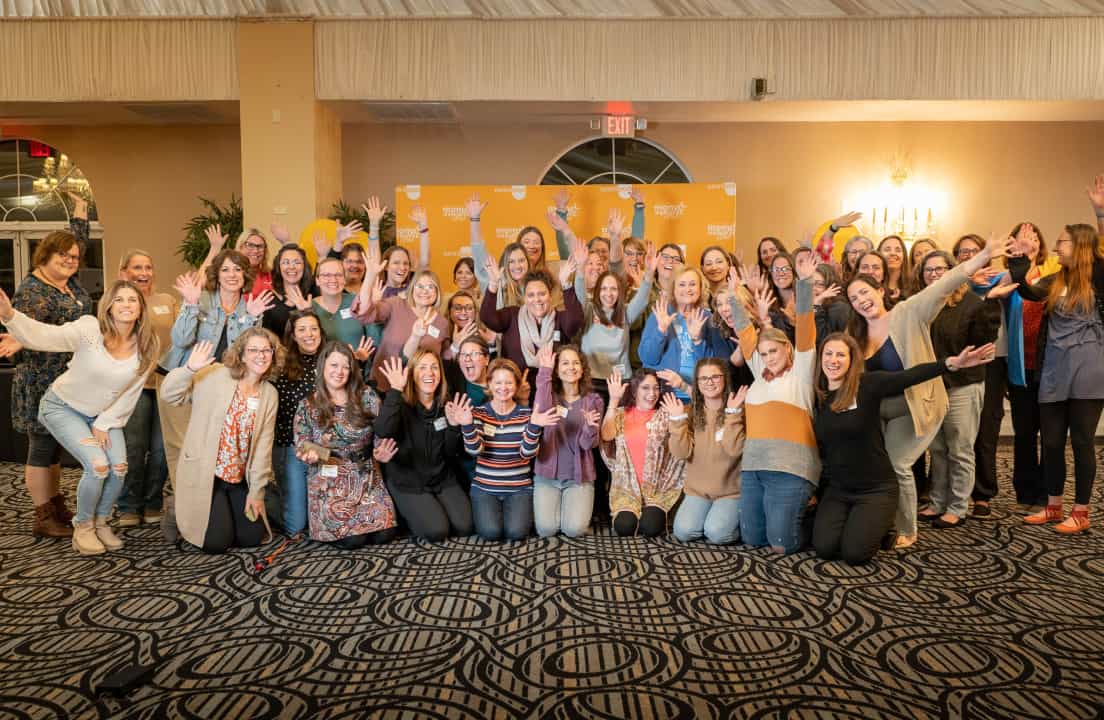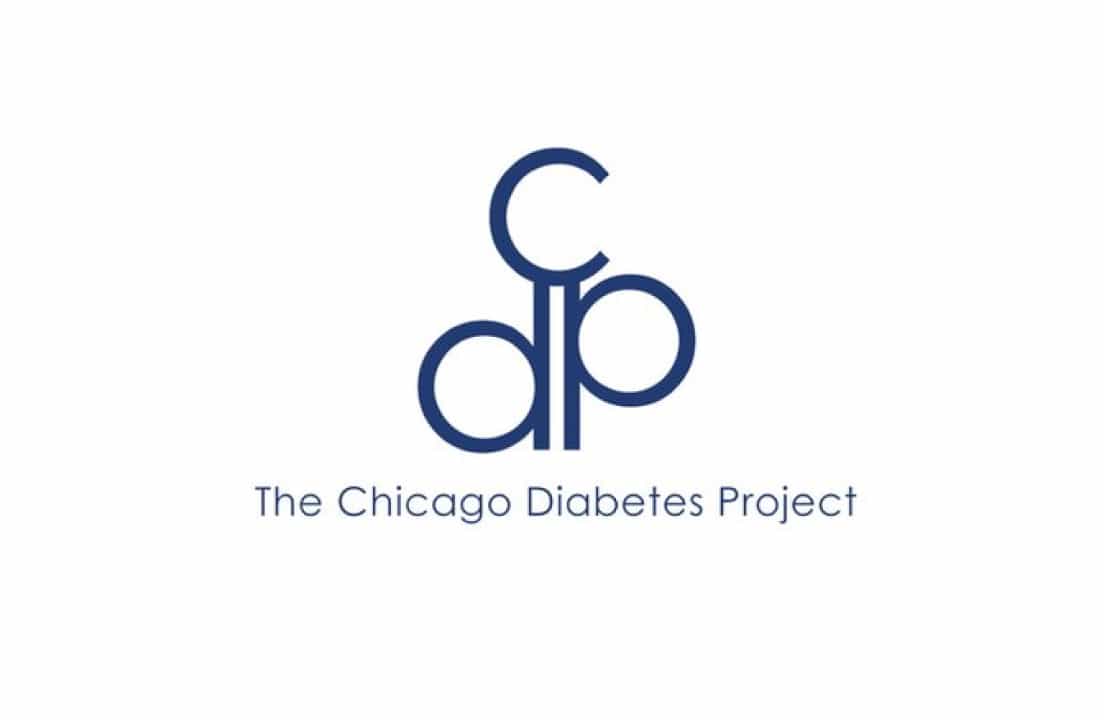T1D Guide
T1D Strong News
Personal Stories
Resources
T1D Misdiagnosis
T1D Early Detection
Research/Clinical Trials
Award-Winning Musical Comedy Duo SugarCoated Sisters Champion Mental Health and Type 1 Diabetes Awareness
Social media sensations and real-life sisters Chloe and Tabby Tingey have garnered millions of views for their celebrated comedic sketches—but beyond the spotlight, their mission is to amplify understanding of what it’s like to live with bipolar type II and type 1 diabetes (T1D).

For Women’s Health Month, T1D Strong spoke with Chloe and Tabby about the common misperceptions surrounding the two diseases, how they beat burnout, and the essential practice of mindful self-compassion.
The Tingey Sisters
From Hertfordshire, UK, the SugarCoated Sisters, Chloe and Tabby Tingey, have skyrocketed to online fame with 2.5 million followers across their social media platforms. You can find them on TikTok, X, Instagram, Facebook and YouTube. The critically acclaimed comedians won Best Newcomer and Funny Women Awards at the 2022 Musical Comedy Awards (MCA) and plan to headline the MCA 2026 venue.

They delight audiences with their edgy songs about dating, politics, and pop culture, but they’re most passionate about shedding light on the everyday realities of living with bipolar and diabetes.
“It was a really natural progression,” said Chloe, who has bipolar type II. “It wasn’t even a conscious decision; diabetes and bipolar are such a big part of our lives.”
“The truth is, we love working together. We’ve always been really close, performing together since we were little,” said Tabby, a T1D. “People started commenting when they saw my insulin pump. We got so many comments where people shared they had diabetes too.”
The siblings moved in together during the COVID-19 pandemic and began making humorous videos about relationship breakups. “We still had jobs, but after a year, we went all in and made it our full-time career,” Tabby said.
Difficult Diagnoses
Both Tabby and Chloe came by their diagnoses the hard way. It took doctors several years to correctly diagnose Chloe with bipolar type II, and when Tabby went to a clinic with the classic signs of type 1 diabetes, she wasn’t taken seriously.
“I explained my symptoms to a doctor who said, ‘Stop wasting my time. You’re just a 17-year-old girl trying to get out of school.’ They sent me home without a test,” said Tabby. “I had been complaining about being desperately thirsty and knew something was seriously wrong.”
“My vision started going blurry. The diagnostic process was extremely flawed at the time,” she said. “My mom suggested I might be T1D, and my heart stopped.”
Tabby had the Type 1 Four T signs.
- Thirst: incredible thirst and hunger
- Thinner: unexplained weight loss
- Toilet: frequent urination
- Tired: constant lethargy
Two days later, Tabby was in danger of diabetic ketoacidosis (DKA) and rushed to the hospital, where they placed her on an insulin drip for seven days. “They gave me an orange and a needle to practice and then sent me home. I had no idea how to use my diabetes pens. The whole process could have been much better.”
“As a 17-year-old, I was keeping myself alive, and all these micro-decisions I had to make 24/7 felt overwhelming. It was a difficult time,” Tabby said. “The drinking age in the UK is eighteen, so it was just at the age all of my friends were going out to the clubs, and I had to be really hyper-aware of my own existence.”
Watch SugarCoated Sisters misdiagnosis video here.
Fortunately, today, her diabetes care is much better. “I have a great team in the UK; they‘ve been amazing.”
Chloe’s Bipolar Diagnosis
Chloe was diagnosed relatively late at 26. “I was relieved when I was diagnosed with bipolar,” she said, “Because it can make sense of years of suffering and confusion. It takes about nine years for someone to be accurately diagnosed with bipolar.”
“I’d like to tell someone newly diagnosed, it’s manageable, and it will be all right. It might take time to find the right medication,” said Chloe. “Find those peer-to-peer support groups. Some are on Facebook. You can live with it, manage it, and have a wonderful life. You can even learn to love your whole being, even the part that is bipolar.”
“I’ve had to look at other areas of my life and find ways to stay balanced. Relationships can be hard,” said Chloe. “I’ve been sober for five years, and I’ve weaved in how I relate to others and how I look at love.”
Advice for Newly Diagnosed Type 1s
Tabby advises taking it one day at a time. “It can feel like you have the weight of the world on your shoulders. Give yourself the grace to make mistakes; it’s a learning process.”
“Try to find a friend with type 1 diabetes because they are the ones who know what you’re going through,” she added. “You don’t have to explain yourself; it really takes the pressure off.”
Tabby also wishes she had known about the T1D community sooner. “When I was diagnosed, I didn’t know anyone with type 1. You couldn’t go on TikTok and find all of these type 1s talking about management or technology—none of that information was readily available.”
Burnout, Stress and Anxiety, Oh My
The mental load of juggling a chronic illness like diabetes or bipolar can be incredibly challenging and exhausting.
The SugarCoated Sisters offer some coping strategies.
“The world can become very stressful at times,” said Chloe. “My therapist keeps encouraging me to find periods of true rest, not watching TV, reading or scrolling on my phone, really carving out those restful, meditative moments day by day. You have to stop and pause to get away from the burnout,” she said. “Sleeping doesn’t count.”
“We work together and live together, and we’re best friends, so we spend all of our time together. It’s really difficult to separate work from just hanging out,” Tabby said. “Because we’re always thinking about work, we need to have a down period to decompress.”

“When I realized there’s something in my body that doesn’t work and I have to actively make those decisions to make it work to keep myself alive— I think I and other T1Ds have an incredible existential view on life,” Tabby explained.
“It’s important for our diabetes and bipolar to really try to be radically kind to ourselves and practice mindful self-compassion,” said Chloe. “Direct that kindness inward to yourself as you would to a friend.”
Chloe went on to say that the sisters are passionate about spreading awareness, connecting with others, and showing people that they are not alone. Challenging misinformation is also high on their priority list for sketches.
Shattering Stereotypes
The myths and stigmas surrounding type 1 diabetes and bipolar disorder are largely due to media misinformation and a lack of public understanding about both conditions. The SugarCoated Sisters aim to debunk the stigma and shame surrounding mental illnesses and diabetes.
The general population still doesn’t understand the medical differences between type 1 and type 2 diabetes. The media doesn’t help with often sensationalized depictions of both conditions, which reinforce false beliefs.
“People assume they know but are misinformed,” said Tabby. “That misinformation becomes a whirlwind because of something they heard years ago." One misperception Tabby dislikes is that T1D does not have a look. "That’s part of the confusion.”
“As a supporter of the T1D community, it really angers me when we watch TV with the casual references, ‘Oh, you better not eat that cake, or you’ll get diabetes,’” said Chloe. “You don’t need to be punching down to get a laugh. Do better.”
“Especially when the jokes are inaccurate,” Tabby added.
“One misperception about being bipolar is that you’re happy, then sad quickly,” Chloe explained. “Racing thoughts and these elevated moods can go on for weeks.”
Spreading Awareness Saves Lives
As type 1 diabetes is autoimmune, people with T1D are susceptible to developing secondary issues, and there is a strong correlation between type 1 and thyroid disorders like Hashimoto thyroiditis (hypothyroidism) and Graves’ disease (hyperthyroidism). Thyroid issues can affect blood sugar control, growth, and energy levels, so regular thyroid screening is recommended for people with T1D, even without symptoms.
Watch SugarCoated Sisters video: Who Else Has Thyroid Problems?
When the duo aired a video about Tabby’s underactive thyroid disease (they’ve done two so far), they received a message on Instagram from a woman in Australia who had a rare parathyroid condition and was seriously unwell. She thanked them for their video and said she had an operation, and it saved her life, all because she watched their video and took action. “We thought, wow! That’s why we feel so passionate,” said Tabby. “It was really a special moment.”

Turning Personal Struggles into Public Strengths
Fortunately for their viewing audience, the two love working together and plan to continue working full-time, debunking myths, promoting inclusion, and normalizing conversations about physical and mental health.
We’re just going to keep going with our videos because we have a lot to say,” said Chloe. “Opportunities may arise from there, so we’ll see.”
“We both have an odd view of the world and how we relate to each other. That kind of mix works quite well for our content and the kind of comedy that we want to create,” said Tabby. “The whole vibe of our channel has been born from our personalities, and our personalities are inherently our conditions; they’re such a part of us that it all feeds in.”
You can find the SugarCoated Sisters here:
- TikTok: @sugarcoatedsisters
- Instagram: @thesugarcoatedsisters
- YouTube: @thesugarcoatedsisters
- X: @sugarcoatedsis


.webp)





.webp)

.jpg)

.jpg)
.jpg)

.jpg)
.jpeg)
.jpg)
.jpg)

.jpg)
.jpg)
.jpg)
.jpg)

.jpg)

.jpg)


.jpg)
.jpg)

.jpg)

.jpg)
.jpg)


.jpg)
.jpg)

.jpg)
.jpg)
.jpg)
.jpg)
.jpg)

.jpg)
.jpg)
.jpg)
.jpg)
.jpg)
.jpg)

.jpg)
.jpg)

.jpg)
.jpg)
.jpg)

.jpg)
.jpg)

.jpg)
.jpg)
.jpg)













.jpg)


.jpg)













.webp)





%20(1).png)




.jpeg)












.webp)